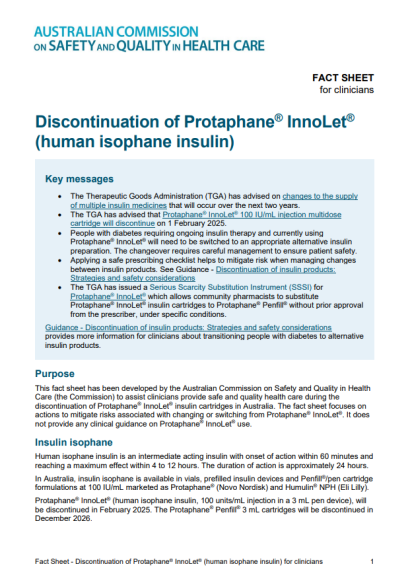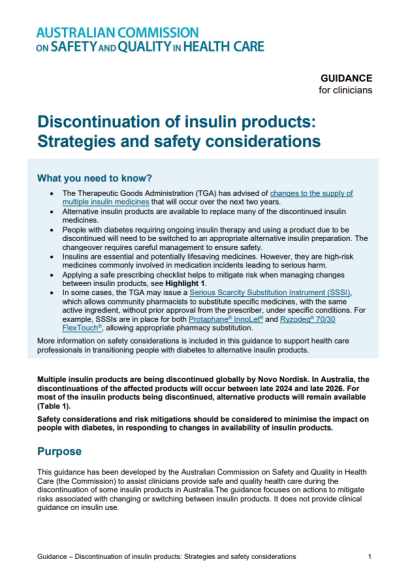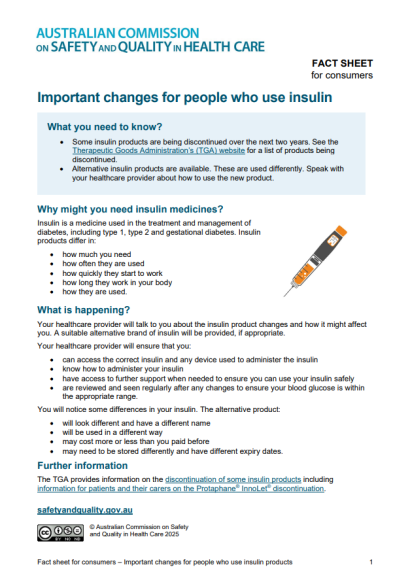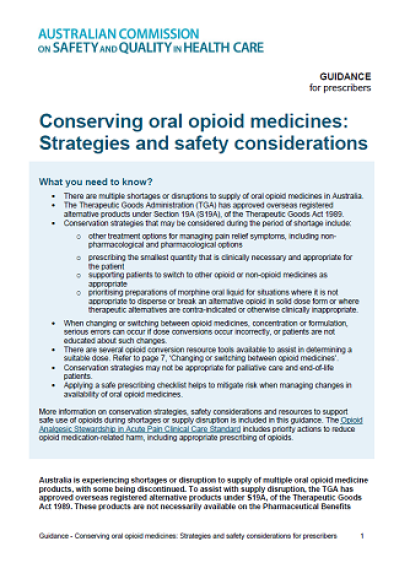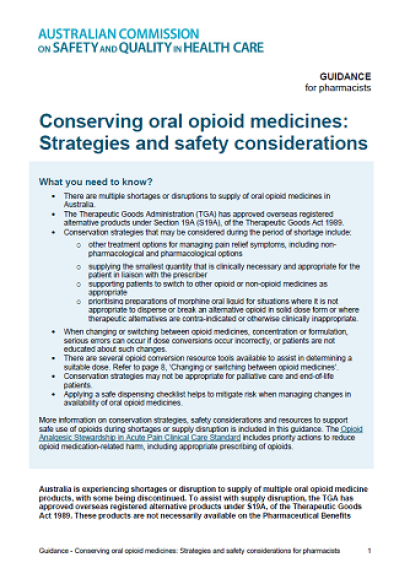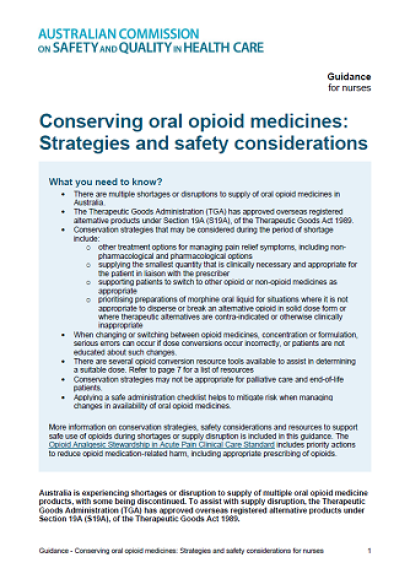Medicine shortages and discontinuations
Medicine shortages and discontinuations can potentially compromise patient safety. Guidance and resources are issued, which advise on:
- strategies on conserving medicines during medicine shortages and associated safety considerations
- strategies and safety considerations during periods of medicine discontinuations.
New resources
Aims of guidance and resources
The aim of the guidance and resources for medicine shortages and discontinuations is to:
- Inform health services, clinicians and consumers about the disruption to supply or discontinuation
- Outline the actions required to minimise risks
- Provide guidance and tools to minimise risk, including reducing the impact from medicine shortages and discontinuations.
Responsibility for guidance and resources
The Therapeutic Goods Administration (TGA) is responsible for:
- Receiving and publishing reports of shortages and discontinuations of prescription and certain over-the-counter medicines
- Publishing alerts on product recalls when a product poses wider implications or a risk to the community’s health and safety.
The National Safety and Quality Health Service (NHSQHS) Medication Safety Standard requires health service organisations to consider the safety implications of medicines shortages, medicine discontinuations and implement evidence-based risk reduction strategies to ensure safe and appropriate storage, prescribing, dispensing, and administration of medicines.
The Commission collaborates with the TGA and states and territories regarding medicine shortages where there is an impact on safety and quality and a need for a national response. It develops guidance and resources to support and guide health service organisations, clinicians and consumers on:
- Conserving medicines
- Safety considerations during medicine shortages and discontinuations.
Guidance and resources
The Commission has developed a guidance paper to provide options and strategies for conserving medicines, with a focus on medicines shortages.


